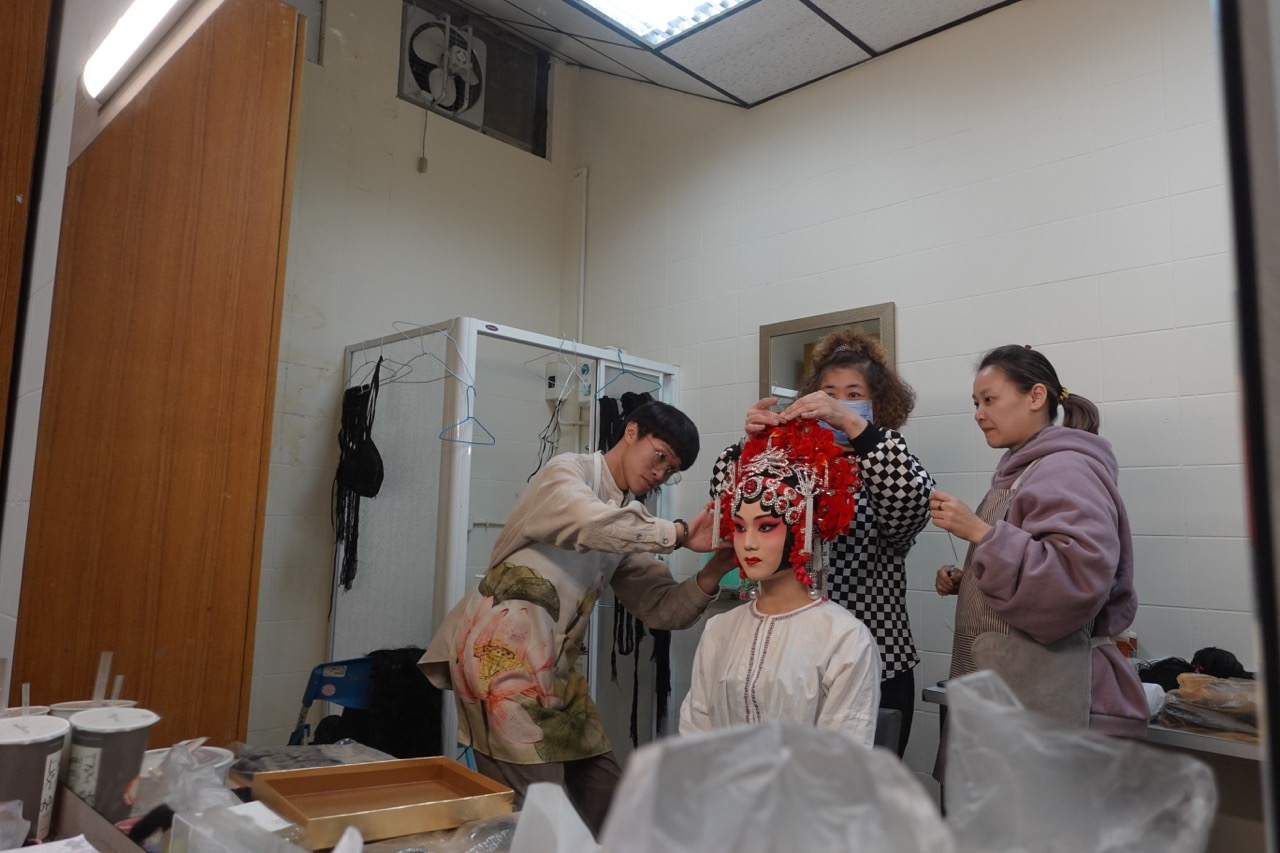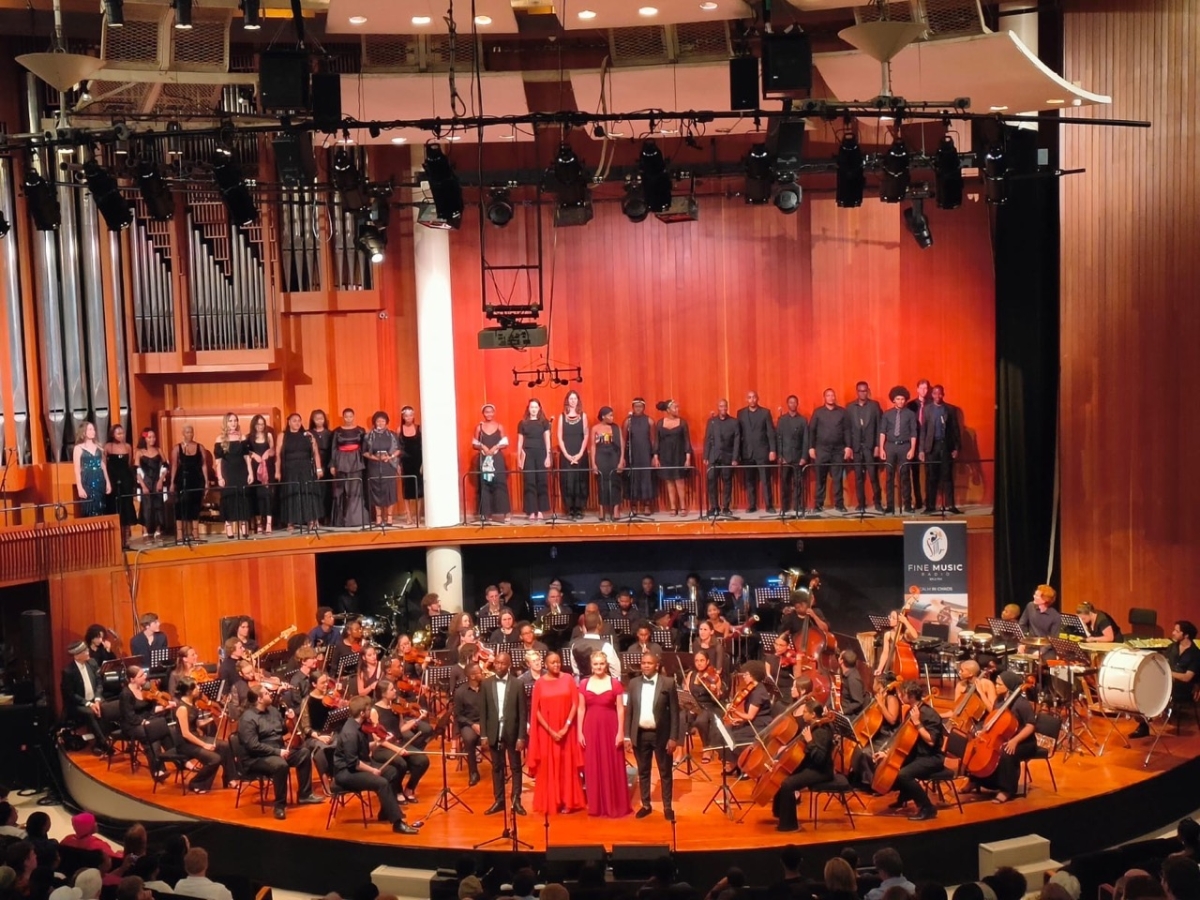Ellie Murphy-Weise ’23, 2023 Thomas J. Watson Fellowship Recipient

Tell us a little bit about your Watson project and where it has taken you this year!
My Watson project looks at contemporary and traditional opera practices around the world, exploring musical innovation, the structure and funding of the total theater genre, and methods for making the art form more accessible to future audiences.
So far, I’ve spent significant time in Sweden, Switzerland, Germany, South Korea, Taiwan, and South Africa, and I’m currently on tour in Prague with an orchestra I joined in October. Each place brings a new dimension or two to the project, and I’ve had so many amazing, disparate experiences like singing at the opera school in Cape Town, witnessing modernized Korean changgeuk, wearing a full Beijing opera costume, and getting into the afterparty for the Berlin State Opera premiere!

What (or who) are the major influences in your life that inspired you to pursue this path? How did your pre-Wellesley life influence your interest in this project?
I’d had a dormant interest in the topic of modern opera since I was in middle school, singing in the children’s chorus of two very different professional opera productions. Seeing firsthand the contrast between Arrigo Boito’s Faustian epic Mephistopheles and Jake Heggie’s stark adaptation of Dead Man Walking was incredibly formative as I began studying opera singing and conducting myself, all while wondering why some operas felt more tangible and socially relevant to me than others.
I was very lucky to get to discuss my project in its nascent stages with Nicole Paiement, the artistic director of the opera company I worked with as a child, and Audrey Wozniak, a Wellesley and Watson alum whose project also involved music. Both of them are incredible role models to me and provided wisdom and insight to what an omnidirectional musical postgrad path could look like. My initial brainstorms had been trying to decide on some intersection of my interests in conducting and new music, but opera was the perfect lens through which to look at any facet of music because it incorporates every art form simultaneously on stage.
What made you decide on this project for Watson specifically? If it differs from your academic interests, what compelled you to pursue it?
Although I double majored in International Relations and Music, which on paper seems perfect for the proposal I came up with, I didn’t take any classes on opera or vocal music in the music department, and my IR major concentrated mostly on East Asian history. I think it was useful to find a deep research interest that was informed by my studies but not the exact same thing, because my Watson has been predominantly a journey of practical knowledge, supported occasionally by academic papers and books.
How did your time at Wellesley shape your proposal? Your professors? Career Education?
I think the liberal arts experience of learning in different disciplines had the most significant impact on my proposal. The classes I specifically chose outside of my majors broadened my perspective and helped me think through the project in different ways. I often joke that I use those non-major classes I took just out of curiosity more often in my day-to-day living abroad than my major classes, from linguistics to urban studies. I am also so grateful to my team members from the Albright Institute for showing me how to leap headfirst into tackling a project independent from academics and grades, self-directed, and thinking creatively through issues.
What inspired you to take the leap and apply? Or, what would you say to encourage your Wellesley sibs to apply?
The Watson Fellowship is the opportunity of a lifetime, unique and unprecedented in the utter freedom afforded to fellows to pursue their passions around the world. It’s brought me to places I’d never dreamed of visiting, given me friends in every corner of the world, and allowed me to not just visit but truly inhabit incredible communities in other cultures. I’ve been so struck by people’s generosity, passion for making music, and new ideas for the future of our art form, and it’s been a privilege to do what I love every day while experiencing so many amazing things.
What has been the most interesting, valuable, and/or surprising part of your year, so far?
One of the most surprising parts of my year so far has been the interpersonal aspect of the music industry, and discovering how small the world is, which is partially a function of an elitist industry but also comes from the necessity of collaboration. I keep a list of the most surprising mutual friends of friends I’ve encountered this year, because it blows my mind how every single person is connected in some way— from a Taiwanese soprano and German music critic connecting me to their friends in South Africa to knowing the same Finnish choir as a Beijing opera master to meeting a director at the Deutsche Oper through grad students at Tufts and the University of Bern.
There are also countless musical points of interest I love talking about all the time, like the linguistic similarities between vowels in Xhosa, Zulu, and Italian that lend South African singers a particular affinity to Verdi roles, or the newly invented strategy of molding the contour of a melody to the tonal inflections of Taiwanese (8 tones!) in order to compose in the bel canto style for that language.

What else might you like to share?
Trying to document this year as meticulously as possible! A little behind on my blog and YouTube channel but posting consistently on my travel Instagram if anyone is interested in hearing different styles of opera and traditional music theater from around the world!



